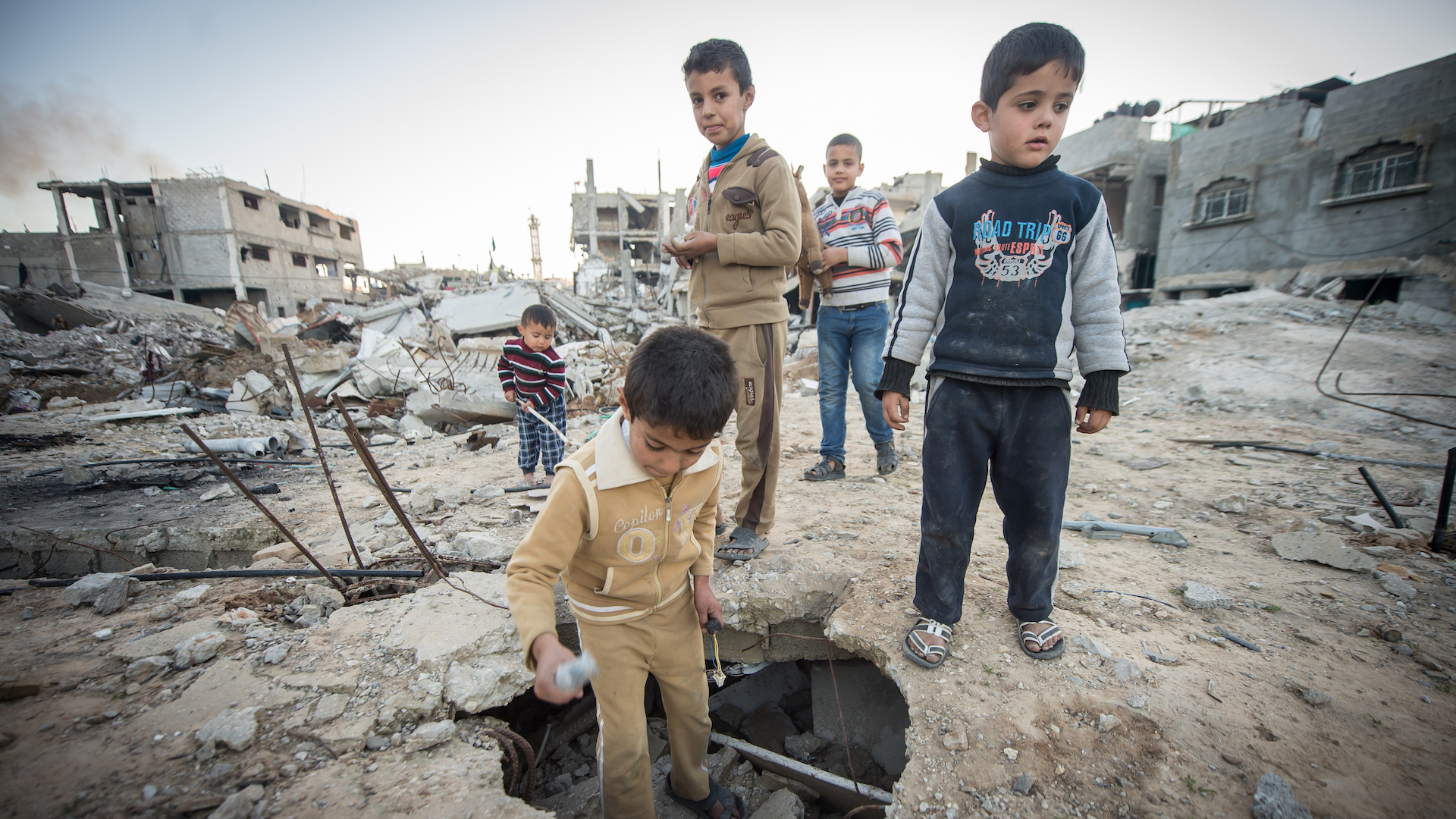Unfortunately for children seeking sanctuary in the UK, the challenges they face don’t end when they arrive. These children have often experienced exploitation and trafficking, and are often vulnerable to this happening again. Feelings of grief and anxiety are common. The uncertainty of their asylum status, often coupled with fear of deportation or detention, further compounds children’s mental health struggles.
There is some support available. For example, the Independent Child Trafficking Guardianship Service, which Barnardo’s delivers for the Home Office, supports victims of trafficking across two-thirds of the local authorities in England and all of Wales – and the government has rightly committed to extend this support across England.
Despite this, we are concerned that there is a lack of access to specialist mental health services, leaving many children and young people without the support they need to begin healing.
These gaps in support can have long-term consequences. The impact on children’s mental and emotional health can be profound, instilling a pervasive sense of fear and undermining any efforts toward recovery or integration. Through specialist foster care and mental health services, Barnardo’s – alongside other charities – is able to help some of these children to receive the love and care that they need to help them deal with the trauma they have experienced. However, many more children do not have access to this vital support.
The challenges facing children arriving in the UK are not new, but we’re concerned that the tone of the debate about immigration and asylum, and some of the government’s recent policy proposals, could make things even more difficult, deepening the struggles already faced by children seeking sanctuary, and making it feel like a happy childhood is even further out of reach.
One of the most difficult experiences for children is when they are wrongly assessed as being adults after arriving in the UK. When that happens, it can mean they are detained or housed alongside adults, which is often frightening and can put their safety at risk. Research from the Refugee Migrant Children’s Consortium has shown that at least 262 children were wrongly classified as adults in just six months, from January-June 2024.
Advertising helps fund Big Issue’s mission to end poverty
If a child can’t prove their age, with no documentation, potential language barriers and in the midst of traumatic upheaval, they are assigned a date of birth by the Home Office if they’re deemed to be over 18. The government has rightly proposed changes to this system, aiming to make it safer for children.
However, at Barnardo’s, we have serious concerns about the impact of the proposed changes, which could be even more dehumanising for children. Under new measures, the use of AI systems will be trialled in age assessments, which adds another layer of potential risk. Research from UCL, among others, has also shown that AI can magnify existing biases in society, suggesting that the new test could be even less accurate – and potentially more harmful – than the current one.
Not everyone will know that children arriving in the UK without a parent or guardian are protected under the law as ‘children in care’ – just like other children living in foster care or a children’s home. The government is now strengthening protections for children in care so that key decisions have to take their welfare and best interests into account.
However, these new rules will not apply when it comes to asylum decisions and we’re concerned that this is a missed opportunity to improve how those often challenging systems operate for young people. We know that some children have been waiting in limbo for years, leaving care and the protection of the social system aged 18, without a decision about their status, leaving them unable to access key services and entitlements because their asylum claim has not been processed.
Moving forward, we urge the government to take a compassionate approach to immigration and asylum, recognising that all children are first and foremost in need of protection, and prioritising their rights and welfare in policy, and making sure that these children are treated the same way we would want our own children to be if they found themselves alone, after fleeing danger.
We believe that children and families like Leonita’s, who have already endured so much in their lives, deserve our compassion and the chance to build safe and happy lives and work towards a positive future.
Advertising helps fund Big Issue’s mission to end poverty
Lynn Perry is chief executive of Barnardo’s.
Promises are easy to break. Sign Big Issue’s petition for a Poverty Zero law and help us make tackling poverty a legal requirement, not just a policy priority.
o give homeless and marginalised people the opportunity to earn an income. To support our work buy a copy of the magazine or get the app from the App Store or Google Play





